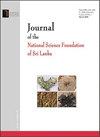气候对茶叶产量的影响:斯里兰卡的经验调查
IF 0.4
4区 综合性期刊
Q4 MULTIDISCIPLINARY SCIENCES
Journal of the National Science Foundation of Sri Lanka
Pub Date : 2024-07-09
DOI:10.4038/jnsfsr.v52i2.11762
引用次数: 0
摘要
农业在很大程度上依赖于气候。茶叶种植也不例外。全球许多发展中国家都种植茶叶,与发达国家相比,发展中国家将主要感受到气候变化的影响。在斯里兰卡等国,农业出口收入的主要部分来自茶叶产业,气候变化的影响将损害这些国家的发展。因此,了解气候如何与生产挂钩将为制定针对具体国家的政策铺平道路。为此,本研究试图利用 2005 年至 2019 年的月度数据来衡量气候与每公顷产量之间的长期关系。研究采用了面板自回归分布滞后模型(ARDL),以获得最低和最高气温与降雨量之间的长期协整关系。生产和投入变量数据来自 37 个大型茶园的月度记录。每月气温和降雨量数据来自斯里兰卡气象局。面板协整检验表明,气候变量与茶叶产量之间存在共存的长期关系。最高气温与产量呈正相关,但最低气温与产量呈长期负相关。降雨量呈正相关。生产投入显示出长期的正向影响。因此,如果长期采用适当的管理方法,最低气温上升可能带来的负面影响是可以克服的。本文章由计算机程序翻译,如有差异,请以英文原文为准。
Impact of climate on tea yield: an empirical investigation from Sri Lanka
Agriculture is heavily climate dependent. Tea cultivation is of no exception. Tea is cultivated in many developing nations around the globe and the climate change impact is to be mostly felt by developing nations in comparison to the developed. In countries such as Sri Lanka, where the major portion of export earning from agriculture comes from the tea industry, the climate change impacts would harm its progress. Hence, understanding how climate has been linked with production would pave the way for development of a country specific policy. To this end, this research attempted to measure the long-run relationship of the climate with the yield per hectare, using monthly data from 2005 to 2019. A panel Autoregressive Distributed Lag model (ARDL) was used to obtain long-run cointegration between minimum and maximum temperatures and the amount of rainfall received. Data on production and input variables were obtained from records kept at 37 large-scale tea estates at monthly intervals. Monthly temperature and rainfall data were obtained from the Meteorological Department of Sri Lanka. Panel cointegration tests indicated that there is a coexisting long-run relationship between climate variables and the tea yield. Maximum temperature had a positive relationship with yield, but minimum temperature shows a long-run negative relationship. Rainfall is positively related. Production inputs show a long-run positive impact. Thus, the possible negative impacts of rising minimum temperature could be overcome if proper management practices are adopted in the long-run.
求助全文
通过发布文献求助,成功后即可免费获取论文全文。
去求助
来源期刊

Journal of the National Science Foundation of Sri Lanka
MULTIDISCIPLINARY SCIENCES-
CiteScore
0.90
自引率
0.00%
发文量
57
审稿时长
>12 weeks
期刊介绍:
The Journal of National Science Foundation of Sri Lanka (JNSF) publishes the results of research in Science and Technology. The journal is released four times a year, in March, June, September and December. This journal contains Research Articles, Reviews, Research Communications and Correspondences.
Manuscripts submitted to the journal are accepted on the understanding that they will be reviewed prior to acceptance and that they have not been submitted for publication elsewhere.
 求助内容:
求助内容: 应助结果提醒方式:
应助结果提醒方式:


